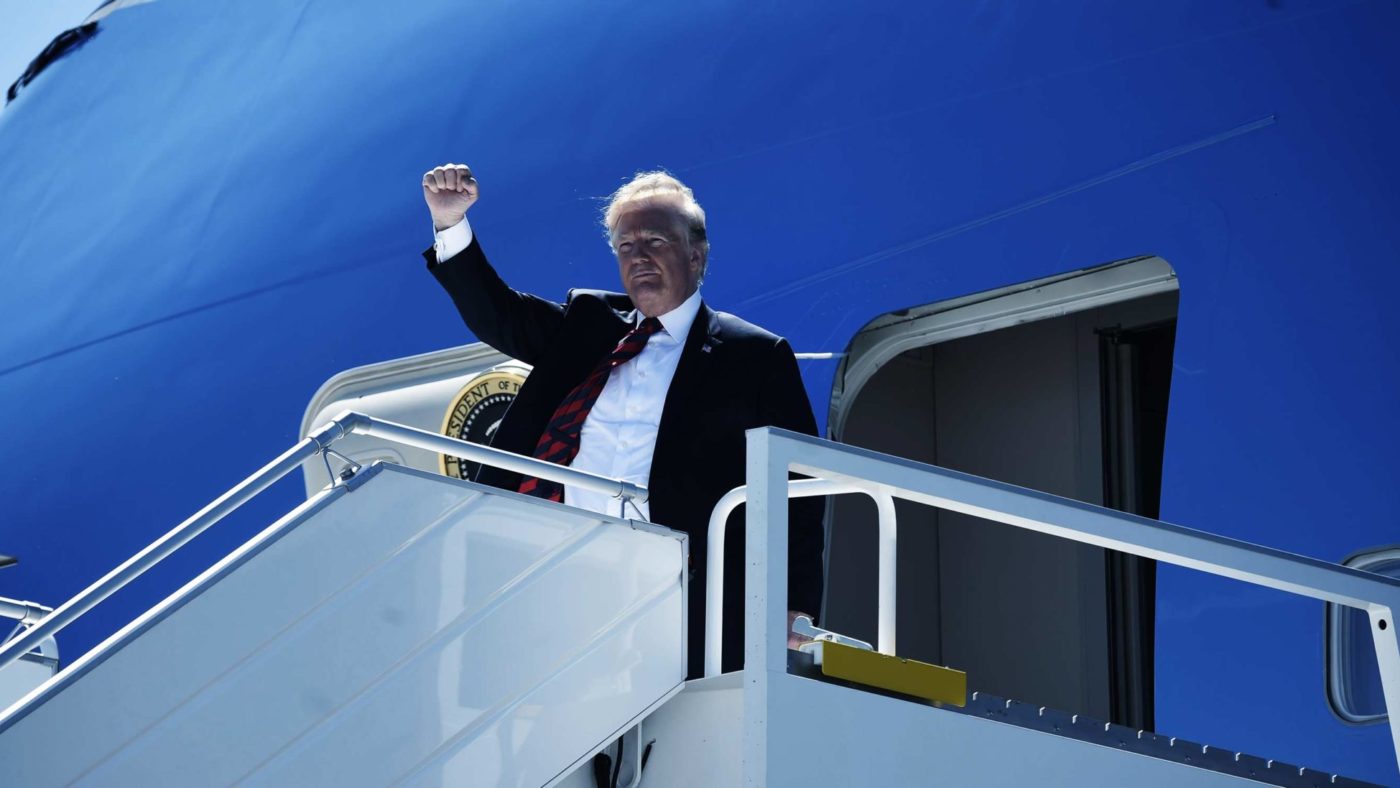President Trump’s triviality and boorishness are exemplified in his predilection for coining silly and insulting nicknames. It’s not the worst aspect of his administration, but still lamentable, that his sycophants have adopted the same puerile behaviour.
In an interview on Fox News yesterday, Peter Navarro, the president’s trade adviser, lambasted “bad faith Justin Trudeau” and “weak, dishonest Justin Trudeau” for the Canadian prime minister’s reasoned criticisms of Mr Trump’s protectionist policies at the G7 summit in Quebec City. Indeed, Navarro referred to Trudeau’s “special place in hell” at exactly the moment that President Trump was travelling to meet Kim Jong-un, the ruler of a totalitarian nightmare-state that is the closest thing in the postwar era to hell on earth.
The language of this administration is intemperate and hostile towards western democracies and obsequious towards autocrats but this isn’t just a mistake of tone. It’s a signal that the world’s leading democracy actively despises the notion of a rules-based international order and is impressed by the exercise of arbitrary power. It’s not hyperbolic to call this a disaster.
For all its errors, sins and sometimes crimes, American foreign policy has historically made the world a better and freer place. In providing global public goods, like a reserve currency and a network of regional security alliances, the United States binds together what would otherwise be an anarchic global system. Now, in the space of less than 18 months, an American administration that harshly denounces allies while flattering the regime of Vladimir Putin has turned that tradition on its head. The damage may be irreparable.
Trade is commerce but its effects are not only pecuniary. As Montesquieu wrote in The Spirit of the Laws (1748), “commerce cures destructive prejudices”. Thirty years ago I was a junior analyst at the Bank of England focusing on Canada, when conservative governments on both sides of the US-Canada border (those of Ronald Reagan and Brian Mulroney, respectively), along with Mexico, were seeking a regional trade agreement.
The argument that cross-border trade generally raises the real incomes of both parties by enabling them to specialise is axiomatic to how economists think about trade. But the benefits of opening markets to free flows of goods, services, investment and labour are far wider. Economic integration accustoms people to non-parochial habits of mind.
American economic diplomacy is vastly different from this. It reflects Mr Trump’s entirely fallacious view that the US current account deficit arises from “unfair” practices by America’s trading partners. It doesn’t. It’s due rather to the fact that Americans don’t save much, hence profitable investment opportunities exceed domestic savings. There is nothing malign in this; on the contrary, the open global economy enables US consumers to enjoy a higher standard of living than would otherwise be possible.
Mr Trump does not understand economics, or the centrality of collective security to America’s interests, or the dangers of his freewheeling incomprehension of international affairs. Alternating between crude personal abuse and a sense of his own visionary status as a negotiator, he succeeds principally in alarming America’s allies and intimating that a rogue state that’s sufficiently bellicose will find a welcome from the White House.
Who knows what Mr Trump will happily trade for nothing of substance, and doing so entirely without the benefit of allied input or expert advice? This approach has no counterpart in the nuclear diplomacy of the US relative to the old Soviet Union, where communist aggression was successfully contained by the reality of deterrence. At the most dangerous point in the Cold War, during the Cuba Missile Crisis of 1962, President Kennedy successfully defused tension both by a resolute determination to confront the projection of Soviet power and by a well-crafted tacit concession (the withdrawal of intermediate-range Jupiter missiles from Turkey).
No such wisdom is in evidence now. The fractured state of Western diplomacy is due to a transactional and amoral approach by the President of the United States, a man unfit for public office of any kind, let alone the leadership of the free world.
America is not, as conservative pessimists like Whittaker Chambers feared during the Cold War, retreating from the world out of fear and timidity. It is instead violating its own international commitments out of a nativist determination to look after itself by any means and regardless of any wider conception of democratic ideals or humanitarian obligation. America’s abandonment of its allies is worse than a shame. It’s a danger to world peace, an abnegation of US obligations and a betrayal of the ideals of the Republic.


